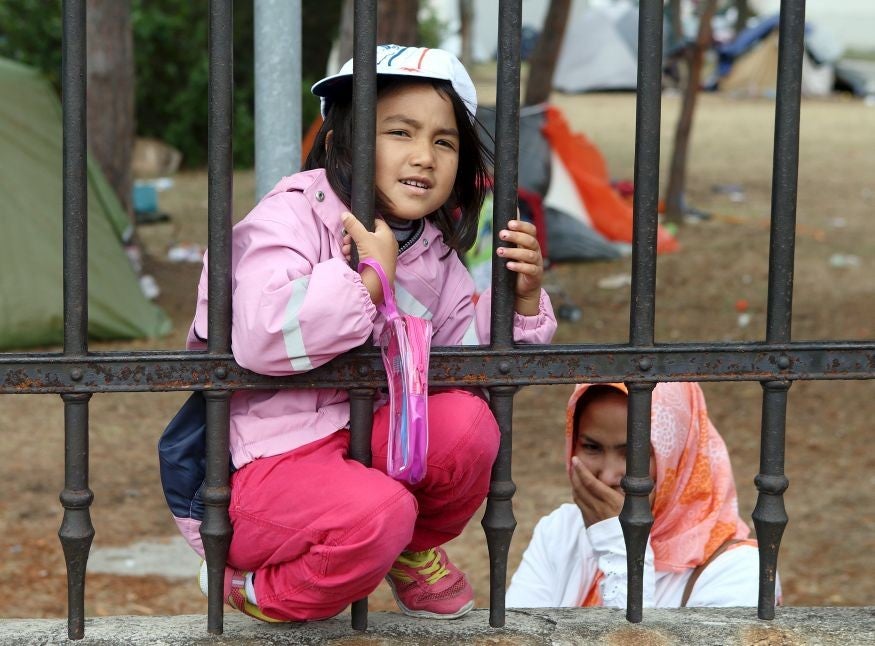The protest song that is one minute of silence is topping the iTunes charts in Austria – and will help Europe's migrants
The Traiskirchen refugee processing centre has been branded 'intolerable, dangerous and inhumane'

Your support helps us to tell the story
From reproductive rights to climate change to Big Tech, The Independent is on the ground when the story is developing. Whether it's investigating the financials of Elon Musk's pro-Trump PAC or producing our latest documentary, 'The A Word', which shines a light on the American women fighting for reproductive rights, we know how important it is to parse out the facts from the messaging.
At such a critical moment in US history, we need reporters on the ground. Your donation allows us to keep sending journalists to speak to both sides of the story.
The Independent is trusted by Americans across the entire political spectrum. And unlike many other quality news outlets, we choose not to lock Americans out of our reporting and analysis with paywalls. We believe quality journalism should be available to everyone, paid for by those who can afford it.
Your support makes all the difference.A minute’s silence released by an Austrian artist to protest against the treatment of refugees in Europe is topping the country’s iTunes chart.
Schweigeminute (“Minute’s Silence”), by Raoul Haspel, has been number one on the iTunes and Amazon download charts in Austria. The track is 60 seconds of total silence and is being played by several radio stations in Austria and Germany.
Proceeds from Mr Haspel's song, which beat German DJ Robin Schulz to the top spot through pre-orders alone earlier this week, will go towards people in the asylum processing centre in Traiskirchen.
Traiskirchen is Austria's main refugee processing centre and has been heavily criticised by the UN refugee agency, who branded conditions "intolerable, dangerous and inhumane".
Built to house 1,800 people, the camp is currently home to 4,000, of which around 1,500 do not have a bed, with many sleeping in tents outside the camp, in parks or at the local train station.
Rights group Amnesty International, visited Traiskirchen earlier this month and said conditions were "unacceptable", with many toilets blocked and communal mixed showers where women had no privacy.
In Austria, the number of asylum requests rose above 28,300 between January and June alone, as many as for the whole of 2014, and officials expect the total to reach 80,000 this year.
Join our commenting forum
Join thought-provoking conversations, follow other Independent readers and see their replies
Comments